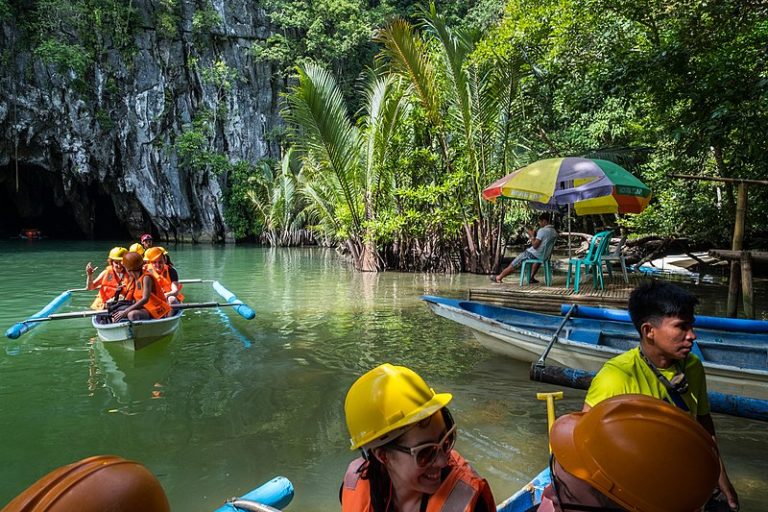Ecotourism is the practice of responsible travel to natural areas that protects the environment, supports conservation efforts, and benefits local communities. By engaging in ecotourism, travelers can experience the beauty of the natural world while also supporting sustainable tourism practices that promote environmental and social responsibility.
Ecotourism provides a much-needed source of income for local communities, promoting economic development without harming the environment. Furthermore, ecotourism supports conservation efforts that preserve natural areas and biodiversity.
To support ecotourism, travelers should research and identify eco-friendly travel products and services. Here are some practical steps you can take:
Research and Identify Eco-Friendly Tour Services
When selecting a tour operator or travel service, consider their policies on sustainability, conservation, and community engagement. Responsible operators should be transparent about their environmental and social practices and policies. Look for tourism certification programs such as the Global Sustainable Tourism Council, Rainforest Alliance, or Green Global Certification, which can help identify eco-friendly tour providers.
Support Local Businesses
Supporting local businesses helps local communities thrive and promotes sustainable tourism. By purchasing from local vendors and eating at locally-owned restaurants, travelers can enjoy regional cuisine while contributing to local economies sustainably.
According to the United Nations Environment Programme (UNEP), “in some developing countries, nature-based tourism accounts for over 15% of gross domestic product (GDP) and is as much as three times the value of agricultural exports and 15 times the value of marine fisheries exports.”
UNEP, Ecotourism: Principles, Practices & Policies for Sustainability (2002)
Choose Responsible Accommodations
When choosing where to stay, consider eco-friendly accommodations, such as ecolodges or eco-resorts, that minimize their impact on the environment. Look for hotels that engage in sustainable practices, such as water conservation and energy-efficient practices.
Be Mindful of Your Environmental Footprint
Being mindful of our environmental footprint is one of the most essential steps we can take as ecotourists. With global warming and climate change threatening our planet and its natural wonders, it is vital that we reduce our impact on the environment in every way possible.
One of the most significant ways to do this is to minimize waste by bringing reusable water bottles and bags. Single-use plastics have become an enormous environmental problem, polluting our oceans and harming marine life. By bringing our reusable bottles and bags, we can help reduce the amount of plastic waste and make a positive impact on the environment.
Additionally, using eco-friendly toiletries is another way to reduce our environmental footprint. Some mainstream cosmetic brands put harmful chemicals into their products that can harm marine ecosystems and wildlife. Instead, look out for natural and organic alternatives that are gentle on your skin and kind to the earth.
Being respectful of local customs and the environment also play a huge role in being an eco-friendly traveler. Avoid littering and taking part in activities that cause environmental disturbances, such as harming wildlife or taking souvenirs that are harmful to the environment. By respecting the environment, travelers can play a vital role in promoting responsible tourism and making a positive impact on local communities.
In conclusion, being aware of our environmental footprint is a crucial part of responsible tourism. By minimizing waste using reusable products, using eco-friendly toiletries, and respecting the environment and local communities, we can make a positive and lasting impact on our planet. Let us all commit to becoming more environmentally conscious travelers and work towards a sustainable future for our planet.
Contribute to Conservation Efforts
Ecotourists can also make a direct contribution to conservation efforts by volunteering with local conservation programs or making donations to organizations that support it. These efforts can range from beach cleanups to tree-planting projects and wildlife conservation initiatives.
Case studies of successful ecotourism projects and initiatives that fell short can provide valuable lessons about sustainable tourism practices. The Soneva Fushi Resort in the Maldives is a prime example of a resort that engages in sustainable practices such as wastewater treatment, sustainable fishing, and eliminating the use of single-use plastics.
On the other hand, the Maya Bay in Thailand fell short due to overcrowding and unsustainable tourism practices, leading to the closure of the beach to visitors. This case underscores the importance of responsible tourism practices and their impact on the environment.
In conclusion, ecotourism offers travelers an opportunity to make a positive change and promote sustainable tourism practices while experiencing the natural world. By supporting eco-friendly travel products and services, local businesses, responsible accommodations, and being mindful of their environmental footprint, travelers can enjoy their vacation while contributing to a sustainable future. Let us embrace the opportunities of ecotourism and remember that responsible tourism is essential for the protection of the environment and the well-being of local communities.

